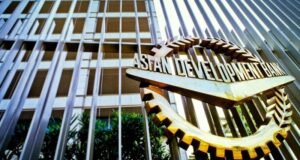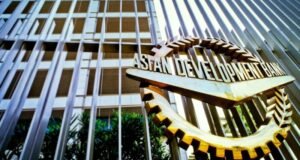
Over the past 15 years, the Awami League government has been accused of widespread corruption in Bangladesh’s electricity sector, particularly in the name of capacity charges.
These charges, paid to power plants for maintaining readiness to generate electricity even when not in use, have allegedly funneled vast amounts of money into the hands of businesspeople with close ties to the government. This has resulted in significant financial strain on the public as electricity prices have steadily risen.
In 2010, the Awami League government enacted the Indemnity Act, also known as the Quick Enhancement of Electricity and Energy Supply (Special Provisions) Act, which allowed the bypassing of standard tender procedures. Under this law, numerous high-priced power plants were approved, with promises of operating at 80 to 85 percent capacity. However, these plants have reportedly been functioning at a mere 25 to 30 percent capacity, meaning they remain idle for the majority of the year. Despite this, the government has continued to pay these plants’ capacity charges, leading to a staggering sum of approximately Tk1.06 trillion being funneled into the pockets of beneficiaries aligned with the Awami League.
This practice has contributed to escalating costs within the electricity sector. According to energy experts, paying capacity charges to idle power plants is either wasteful or outright theft. The Power Development Board’s (PDB) annual report reveals that between the 2008-09 and 2017-18 fiscal years, Independent Power Producers (IPPs) and rental plants received around 430 billion BDT in capacity charges. This amount swelled to Tk635 billion over the following five years, from 2018-19 to 2022-23. Analysis shows that 81 percent of the electricity sector’s subsidies are allocated to paying these capacity charges. In the revised budget for the 2023-24 fiscal year, Tk390.4079 billion was set aside as a subsidy for the electricity sector, with over Tk320 billion earmarked for plant rental fees.
Bangladesh’s electricity production capacity currently stands at 26,578 megawatts. However, only 13,500 megawatts are used during normal periods, with demand peaking at 16,500 megawatts during high-temperature seasons. This leaves approximately 11,000 megawatts of capacity sitting idle, yet these plants continue to receive capacity charges. A survey conducted by the Center for Policy Dialogue (CPD) found that the majority of subsidies in the electricity sector are used to cover these charges. A report by the Implementation, Monitoring and Evaluation Division (IMED) of the Planning Commission described this practice as a “looting model,” attributing it to deliberately crafted contracts.
The roots of this issue can be traced back to the period before the Awami League came to power in 2009. The caretaker government had approved eight quick rental power plants through tenders. However, in 2009, the Awami League approved 32 additional quick rental power plants without tenders. To facilitate this, an emergency special law was passed in 2010, initially for two years. This law has since been extended multiple times and is now set to remain in effect until 2026. Under this law, 72 rental and IPP plants were approved, with many contracts awarded to businesspeople close to the government. Notable companies benefiting from these contracts include Summit, Orion, Desh Energy, Doreen Power, United, and Energypac.
Summit Group, a family business of Faruk Khan, an Awami League MP, was among the biggest beneficiaries, receiving Tk1,957 crores in rent for seven power plants. United Group followed with five power plants, receiving Tk1,682 crores. Other significant beneficiaries included Confidence Group, BanglaCAT, Singapore-based Sembcorp, US-based APR Energy, and Doreen Group. The connections between these companies and the Awami League are striking. For example, Doreen Power is owned by Tahzib Alam Siddique, the son of former Chhatra League president Nur Alam Siddique, who won parliamentary elections as an Awami League nominee. Desh Energy was owned by the late Dhaka North City Corporation mayor Anisul Huq.
An analysis of the government’s records indicates that even during peak demand, 30 to 40 percent of power plants remain idle. Despite this, the government extended the tenure of five rental power plants last year, which collectively have a capacity of just over 600 megawatts. These plants, initially brought in for a three-year period, have had their contracts extended multiple times. The latest extension alone will cost the government approximately Tk500 crores annually. The extended plants include Summit’s 120-megawatt plant in Narayanganj, PowerPac’s 100-megawatt plant in Keraniganj, Dutch-Bangla’s 100-megawatt plant in Meghnaghat, and others.
The Energy Advisor of the Consumers Association of Bangladesh (CAB), Professor M. Shamsul Alam, has called for the elimination of what he describes as unreasonable and exploitative expenses under the guise of capacity charges. He advocates for the cancellation of the Power Purchase Agreements (PPA) under which these charges were incurred. Alam argues that since these agreements were made by the government, it would be challenging for the government itself to annul them. Instead, he suggests that the public, with CAB’s support, should work to cancel these agreements through legal channels. He also calls for a reevaluation of electricity prices based on justifiable costs and for an independent analysis of the electricity sector’s expenses by a competent regulatory commission.
The Awami League’s policy of approving high-priced rental and quick rental power plants under indemnity laws, without tenders, was initially justified as a response to emergency demand. However, these plants have not been shut down even after a decade and a half, and the government has continued to increase production capacity relative to demand. This has led to a situation where idle power plants are regularly paid capacity charges, despite not producing any electricity. The majority of these plants are owned by businesspeople closely tied to the Awami League, resulting in a significant increase in subsidies for the electricity sector. In 2008, these subsidies amounted to 9 billion BDT, but this figure has since ballooned to Tk400 billion, with over 80 percent of this amount going toward rental payments.
In summary, the alleged corruption and mismanagement within Bangladesh’s electricity sector have led to enormous financial burdens on the public and have raised questions about the Awami League’s governance practices. The ongoing payment of capacity charges to idle power plants, facilitated by laws passed under the Awami League’s tenure, has created a system that many believe needs urgent reform.
 Weekly Bangla Mirror | Bangla Mirror, Bangladeshi news in UK, bangla mirror news
Weekly Bangla Mirror | Bangla Mirror, Bangladeshi news in UK, bangla mirror news







